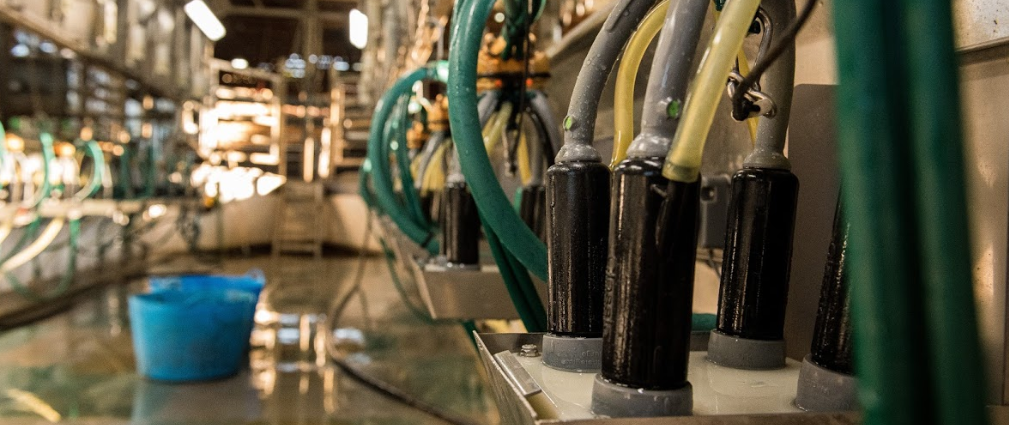
Under CFAP (USDA’s Coronavirus Farm Assistance Program), dumped milk is not expected to be compensated for its full value, but the milk that is produced and dumped will still be eligible for the payment rate that milk receives under the direct payment program (i.e., 85% of the price drop from January to April).
Direct Assistance for Farmers and Ranchers
USDA will provide $16 billion in direct payments to farmers and ranchers including:
- $9.6 billion for the livestock industry
- $5.1 billion for cattle
- $2.9 billion for dairy
- $1.6 billion for hogs
Dairy producers will receive a single payment determined using two calculations:
- Price losses that occurred January 1-April 15, 2020. Producers will be compensated for 85% of price loss during that period.
- Second part of the payment will be expected losses from April 15 through the next two quarters and will cover 30% of expected losses.
Payments are expected to be out by the end of May 2020. However, if future relief comes, it is important that any dumped milk on the farm be documented by measuring it and recording it with the date it was discarded. Keep a log of discarded milk, and consider taking photos of the measurement stick just in case.
USDA does recognize that the initial CFAP support does not go far enough in covering losses related to dairy. Dairy farmers and others are encouraged to contact their Congressional delegates to let them know the challenges you are experiencing. To encourage them to provide coverage for dumped milk, please use the talking point below:
“Congress should urge the immediate activation of a milk loss and block grant program similar to the 2019 Wildfires and Hurricanes Indemnity and Milk Loss (WHIP-ML) Programs to indemnify eligible dairy operations for milk that was dumped, removed without compensation or received a reduction in price from the commercial milk market due to COVID-19 and continue with this program through June 2020.”
Are there any other options/resources for dairy farmers who had to dump milk?
- If you do not have a raw milk permit, you cannot market your raw milk through on farm sales or retail. To learn more about raw milk permits, click here. Your milk handler also may have restrictions against raw milk sales on the farm.
- Governor Wolf did authorize the temporary suspension of manure and waste land application regulations for dairy operations to address dumping excess milk and the challenges that come with it.
Guidance from FMMO
USDA FMMOs when requested due to changes in supply and demand based on impacts of COVID-19. Actions will initially be for the time period of March-May, as needed. Any requests should be made to the local Market Administrator.
- USDA will provide flexibility for the disposal of milk and limit the financial impact to producers. Milk historically associated with a FMMO will be allowed to be dumped at the farm and still priced and pooled on the FMMO. The pooling handler will need to notify the FMMO of any dumped milk.
- Some pooling provisions, shipping and/or diversion limits, of individual orders may be adjusted to accommodate changes in supply/demand due to COVID-19 responses.
- Some fully regulated plants are having difficulty meeting the increased demand at grocery stores and will be allowed to purchase milk from other sources such as a partially regulated distributing plant, provided the additional milk is pooled and priced on a FMMO.
- If a Producer-Handler loses their markets due to COVID-19, the FMMO will allow these entities to become fully regulated and then revert to their Producer-Handler status once the market returns to normal.
- If a Producer-Handler has the capacity to process additional fluid milk for consumers, the FMMOs will lift the limit on the amount of outside milk the Producer-Handler can purchase as long as the milk is pooled and priced on a FMMO. The Producer-Handler must still remain under the three-million pound production threshold in order to keep its Producer-Handler status.
- This means if in a coop structure the losses are spread across members.
- If Independent dairy chooses to report dumped milk they will pay producer at the lower of class III or IV milk instead of class I.
The Pennsylvania Milk Marketing Board also issued this guidance on dumped milk:
To encourage efforts to cooperatively address on-farm milk dumping to the best mutual outcome for milk dealers and producers, Board Staff will not strictly enforce regulations and orders regarding the dealer-producer relationship and producer payment if milk dealers and producers come to explicit agreement regarding payment and on-farm dumping. Concerned producers have contacted Board Staff because they are not sure of their status and rights when they have been asked to dump milk. Board Staff believes that explicit agreements will help ensure that both producers and dealers understand their rights and obligations.
However, Board Staff will strictly enforce all regulations and orders issued under the Milk Marketing Law pertaining to producer payment and the milk dealer-producer relationship if necessary. These provisions include minimum producer payment obligations, regulations regarding the 28-day notice required to terminate a dealer-producer relationship, and regulations prohibiting rejection of producer milk for other than quality or sanitary reasons.
Contact the PMMB: By Phone at 717-836-1115 or by visiting their website at www.mmb.pa.gov.

